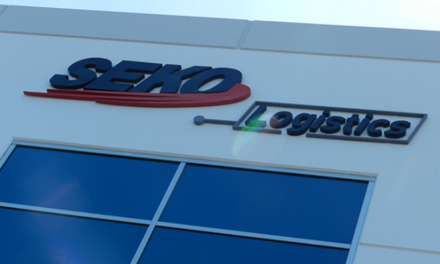
The mailroom – the forgotten facility

By Mark Calladine, Sales director, CMS Network.
The first quarter of 2017 saw the UK’s private sector outsourcing market record its strongest quarterly performance in five years, with businesses agreeing deals worth £2.42 billion according to the Arvato UK Outsourcing Index. The outsourcing model continues to shape private sector strategy, enabling businesses to focus on core areas of expertise amidst a climate of increased competition. Nearly every aspect of business operation is covered – IT, catering, reception, engineering maintenance, cleaning, security, waste management, office space management – the list goes on. There remains, however, one essential component of corporate performance that is generally overlooked: the mailroom.
Despite the proliferation of digital tools, mail remains a critical part of the communication mix. Analysts estimate that mail operations – including the use of courier services – account for around 9% of the budgets of Fortune 500 companies. One would think these figures reason enough to monitor the efficiency and quality of the mail operation, but, in a vast majority of businesses, mail processes continue year-on-year without attracting the strategic analysis afforded to other parts of the organisation.
Delve a little further into the UK’s outsourcing figures and the numbers reveal a significant spend on services related to improving the customer experience – with these contracts alone worth £437 million in Q1. Here, the spend centres on customer-focused services such as call centres and IT for web development and online response services. It generally isn’t focused on mail. This is an oversight. When the make-up of business mail is considered – whether transactional invoices and statements, marketing communications, contracts and more – there is no room for error in delivering such communications. Forgetting about the mail operation is causing businesses to run with higher fixed overheads and increased costs – with antiquated technology and poor efficiency.
At a time when many businesses are consolidating premises and sharing facilities the mail function remains a dysfunctional anomaly. These legacy mailrooms are a long-way removed from the sustainable, sleek, smart-working environments that are the vision of many business leaders today. The time is right to seek impartial, expert advice in order to bring mail operations up-to-speed with modern business thinking.
The first task is to seek an expert partner who knows the mail environment inside out. This includes courier service usage which can quickly become a significant cost-drain if bookings are not carefully managed, and can leave the business at risk of reputational damage if the wrong courier service is selected. Large facilities management and outsourced service suppliers can often seem like jack-of-all-trades, providing solutions for a variety of business challenges. The mail market is a complex and constantly evolving arena, one that requires specialist knowledge if services are to become efficient and effective.
Of course, cost-savings will always be a priority and the best partners will understand the correct delivery model for the specific volume, type and destination of mail – but this is more than a cost-saving exercise. Expert partners will act as consultants across the entire mail operation – looking at delivery processes but also at the make-up of the mail facility itself, its footprint within the business and the way staff interact with the facility.
The result of such analysis is that mail as a function becomes better aligned with strategic business goals around overheads, staffing and sustainability. In many cases, staff that have been tasked with overseeing mailroom processes can be upskilled to focus on critical frontline activities.
The UK’s private sector continues to invest in outsourced support in order to fulfil a variety of business processes. Despite the critical role that mail continues to play in business life, the mailroom is often neglected when it comes to seeking expert third-party guidance. Pioneer businesses are changing this mindset, recognising that with strategic support, the mail function can transform from a legacy burden into a key strategic asset.












